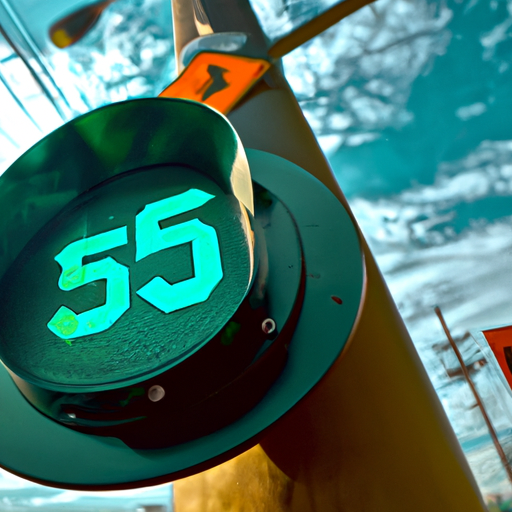Summer league not an indicator

The Importance of Summer League for NBA Players
The Importance of Summer League for NBA Players
The NBA Summer League is an annual event that takes place during the offseason, where teams gather to evaluate their young talent and potential prospects. It provides an opportunity for players to showcase their skills and make a case for a spot on an NBA roster. However, it is important to note that the Summer League should not be seen as a definitive indicator of a player’s future success in the NBA.
One of the reasons why the Summer League should not be overemphasized is the level of competition. While there are undoubtedly talented players participating, the overall level of competition is not on par with the regular NBA season. Many of the players in the Summer League are rookies or young players who have yet to establish themselves in the league. As a result, the level of play can be inconsistent, and the competition may not accurately reflect what players will face during the regular season.
Another factor to consider is the limited amount of time teams have to evaluate players during the Summer League. The games are relatively short, and teams often have multiple players they are trying to assess. This means that players may not have enough time to fully showcase their abilities or develop chemistry with their teammates. Additionally, teams may have specific objectives or strategies they want to test during the Summer League, which can impact a player’s performance and role on the court.
Furthermore, the Summer League is just one piece of the puzzle when it comes to evaluating a player’s potential. NBA teams also consider a player’s performance in college or international leagues, as well as their physical attributes, basketball IQ, and work ethic. These factors provide a more comprehensive picture of a player’s abilities and potential for success in the NBA.
It is also worth noting that some players who excel in the Summer League may struggle to translate their success to the regular season. The NBA is a different beast altogether, with faster pace, stronger opponents, and more complex defensive schemes. Players who dominate in the Summer League may find it challenging to replicate their success against seasoned NBA veterans.
On the other hand, some players who struggle in the Summer League may go on to have successful NBA careers. The Summer League is a learning experience for many young players, and it can take time for them to adjust to the speed and physicality of the NBA game. It is important not to write off a player based solely on their performance in the Summer League.
In conclusion, while the NBA Summer League provides an opportunity for players to showcase their skills and make a case for a spot on an NBA roster, it should not be seen as a definitive indicator of a player’s future success in the league. The level of competition, limited evaluation time, and the different challenges of the regular season all contribute to the Summer League’s limitations as a predictor of NBA success. NBA teams consider a variety of factors when evaluating players, and the Summer League is just one piece of the puzzle.
How Summer League Can Impact a Player’s Career

The NBA Summer League is an annual event that takes place during the offseason, where teams showcase their young talent and evaluate potential additions to their roster. It is a platform for rookies, second-year players, and undrafted free agents to prove themselves and catch the attention of NBA scouts and coaches. However, it is important to note that the Summer League should not be seen as a definitive indicator of a player’s future success in the league.
One reason why the Summer League should not be overemphasized is the level of competition. While it is true that there are some talented players participating, the overall level of competition is not on par with the regular NBA season. Many of the players in the Summer League are still developing their skills and adjusting to the professional game. As a result, the performances and statistics generated during this event may not accurately reflect a player’s true abilities.
Another factor to consider is the limited sample size. The Summer League typically lasts for a few weeks, with each team playing a handful of games. This small sample size makes it difficult to draw definitive conclusions about a player’s potential. A player may have a standout performance in one game but struggle in the next, making it challenging to gauge their consistency and ability to perform at a high level consistently.
Furthermore, the Summer League often features different playing styles and strategies compared to the regular NBA season. Coaches may experiment with different lineups, rotations, and offensive/defensive schemes during these games. This can create an environment that is not necessarily conducive to a player’s natural strengths and abilities. As a result, a player who excels in the Summer League may not necessarily thrive in the regular season when faced with more structured and competitive gameplay.
It is also important to consider the pressure and expectations that come with the Summer League. Many players feel the need to prove themselves and make a strong impression on coaches and scouts. This added pressure can sometimes lead to players forcing shots, making careless mistakes, or trying to do too much individually. These factors can negatively impact a player’s performance and may not accurately reflect their true potential.
While the Summer League can provide valuable experience and exposure for young players, it should not be the sole basis for evaluating their future success in the NBA. Scouts and coaches understand the limitations of this event and take into account a player’s overall body of work, including their college career, international experience, and performance in training camps and preseason games.
In conclusion, the NBA Summer League should not be seen as a definitive indicator of a player’s future success in the league. The level of competition, limited sample size, different playing styles, and added pressure all contribute to the need for caution when evaluating a player’s performance during this event. It is important to consider a player’s overall body of work and take into account other factors before making any judgments about their potential in the NBA.
Key Takeaways from the NBA Summer League
The NBA Summer League is an annual event that takes place during the offseason, providing an opportunity for teams to evaluate their young players and for rookies to showcase their skills. While it can be exciting to see these up-and-coming talents in action, it is important to remember that the Summer League should not be seen as a definitive indicator of future success in the NBA.
One key takeaway from the Summer League is that individual performances should be taken with a grain of salt. While it is certainly impressive to see a player dominate the competition and put up big numbers, it is crucial to consider the level of competition they are facing. Many of the players in the Summer League are still developing their skills and may not be at the same level as their NBA counterparts. Therefore, it is important not to overvalue a player’s performance in this setting.
Another important factor to consider is the limited sample size of the Summer League. The event typically lasts for only a few weeks, with each team playing a handful of games. This small sample size makes it difficult to draw definitive conclusions about a player’s abilities. A player may have a standout performance in one game, but it is important to see if they can consistently perform at a high level over a longer period of time.
Additionally, the style of play in the Summer League can be quite different from that of the regular NBA season. Teams often prioritize individual development and experimentation over winning games. This can lead to a more fast-paced and high-scoring style of play, which may not accurately reflect the style of play in the NBA. Therefore, it is important to consider how a player’s skills and performance in the Summer League will translate to the regular season.
Furthermore, the Summer League is often a time for players to work on specific aspects of their game. For example, a player may be focusing on improving their shooting or developing their playmaking abilities. While it is encouraging to see players making progress in these areas, it is important to remember that they may still have other areas of their game that need improvement. Therefore, it is important not to make sweeping judgments about a player’s overall abilities based solely on their performance in the Summer League.
In conclusion, while the NBA Summer League can provide valuable insights into the potential of young players and rookies, it should not be seen as a definitive indicator of future success in the NBA. Individual performances should be taken with caution, considering the level of competition and the limited sample size of the event. The style of play in the Summer League may also differ from that of the regular season, and players may be focusing on specific aspects of their game. Therefore, it is important to view the Summer League as just one piece of the puzzle when evaluating a player’s abilities and potential in the NBA.

